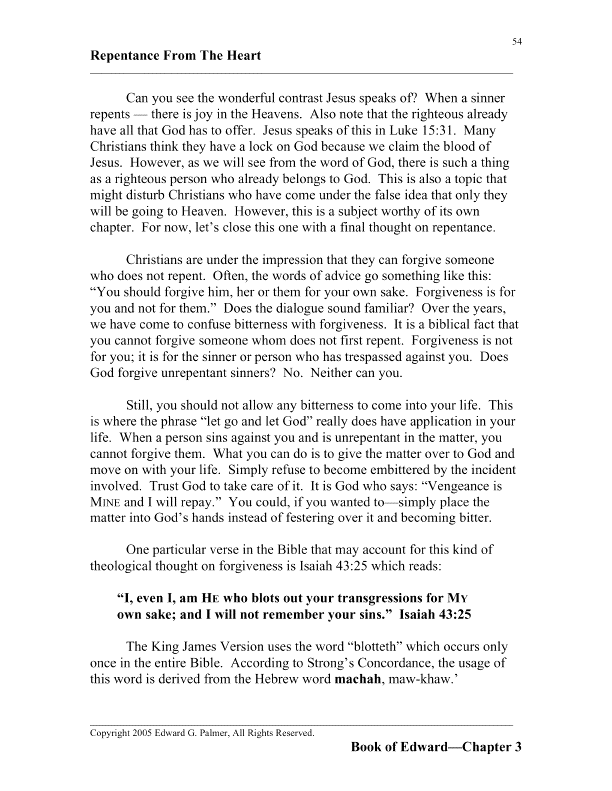

 1
2
3
4
5
6
7
8
9
10
11
12
13
14
15
16
17
18
19
20
21
22
23
24
25
26
27
28
29
30
31
1
2
3
4
5
6
7
8
9
10
11
12
13
14
15
16
17
18
19
20
21
22
23
24
25
26
27
28
29
30
31



Christians are under the impression that they can forgive someone who does not repent. Often, the words of advice go something like this: “You should forgive him, her or them for your own sake. Forgiveness is for you and not for them.” Does the dialogue sound familiar? Over the years, we have come to confuse bitterness with forgiveness. It is a biblical fact that you cannot forgive someone whom does not first repent. Forgiveness is not for you; it is for the sinner or person who has trespassed against you. Does God forgive unrepentant sinners? No. Neither can you.
Still, you should not allow any bitterness to come into your life. This is where the phrase “let go and let God” really does have application in your life. When a person sins against you and is unrepentant in the matter, you cannot forgive them. What you can do is to give the matter over to God and move on with your life. Simply refuse to become embittered by the incident involved. Trust God to take care of it. It is God who says: “Vengeance is MINE and I will repay.” You could, if you wanted to—simply place the matter into God’s hands instead of festering over it and becoming bitter.
One particular verse in the Bible that may account for this kind of theological thought on forgiveness is Isaiah 43:25 which reads:
“I, even I, am HE who blots out your transgressions for MY own sake; and I will not remember your sins.” Isaiah 43:25
The King James Version uses the word “blotteth” which occurs only once in the entire Bible. According to Strong’s Concordance, the usage of this word is derived from the Hebrew word machah, maw-khaw.’